Bomb drones deployed by warring tribes in India’s forgotten civil war
The slow-churning violence splitting the state of Manipur along ethnic lines dramatically escalated this month with the emergence of weaponised drones. Devastated families complain to Namita Singh about government inaction as the bodies of their loved ones remain in hospital morgues

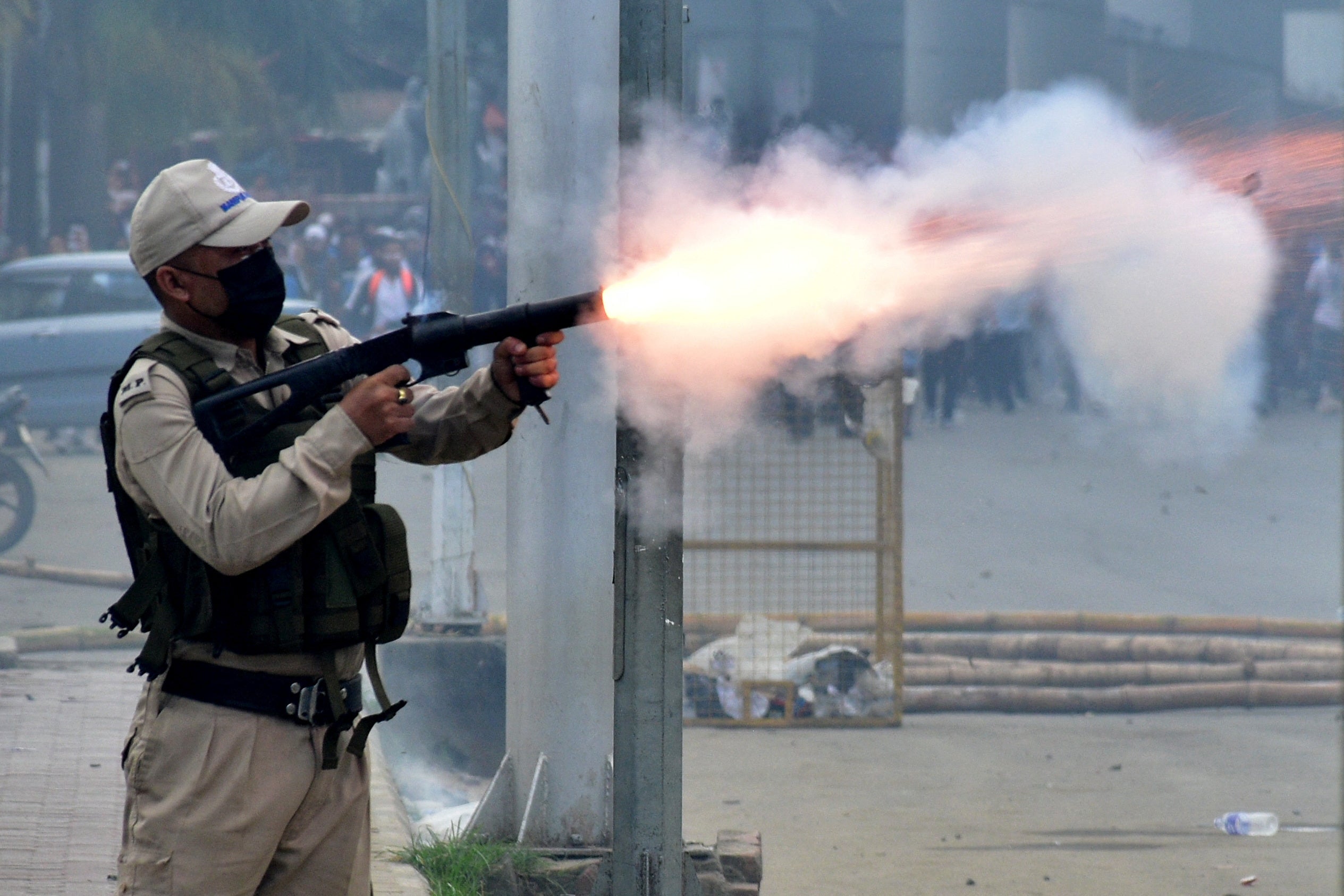
Your support helps us to tell the story
From reproductive rights to climate change to Big Tech, The Independent is on the ground when the story is developing. Whether it's investigating the financials of Elon Musk's pro-Trump PAC or producing our latest documentary, 'The A Word', which shines a light on the American women fighting for reproductive rights, we know how important it is to parse out the facts from the messaging.
At such a critical moment in US history, we need reporters on the ground. Your donation allows us to keep sending journalists to speak to both sides of the story.
The Independent is trusted by Americans across the entire political spectrum. And unlike many other quality news outlets, we choose not to lock Americans out of our reporting and analysis with paywalls. We believe quality journalism should be available to everyone, paid for by those who can afford it.
Your support makes all the difference.Ngangbam Ingo’s life fell apart earlier this month when his wife was shot and killed in an attack by a tribal militia in northeastern India, part of the escalating ethnic conflict that has riven the state of Manipur in two.
While sporadic clashes between two ethnic communities in the state have led to a steady trickle of deaths since the conflict began 18 months ago, a new and worrying escalation emerged this month with the first use of weaponised drones – until now both sides have been wielding basic firearms such as hunting rifles and improvised weapons.
On 1 September, Ingo’s wife Ngangbam Surbala, 36, and their 11-year-old daughter Ngangom Rojiya were on their way back from visiting their son, Mahesh, 14, at his boarding school when they found themselves in the crossfire of an attack by suspected Kuki militia.
“My daughter wanted to visit her grandmother, and that’s when they were attacked,” Ingo tells The Independent. At 1.50pm that day, Ingo received a frantic call from his wife.
“She told me there was heavy gunfire. I was worried and told them to take cover, to just hide,” he recalls while speaking in local Manipuri language as his voice shakes with emotion. Just three minutes later, he received another call – this time, with devastating news. “My wife had been shot, and my daughter was injured, a local told me, calling from their phone,” he says, choking back tears.
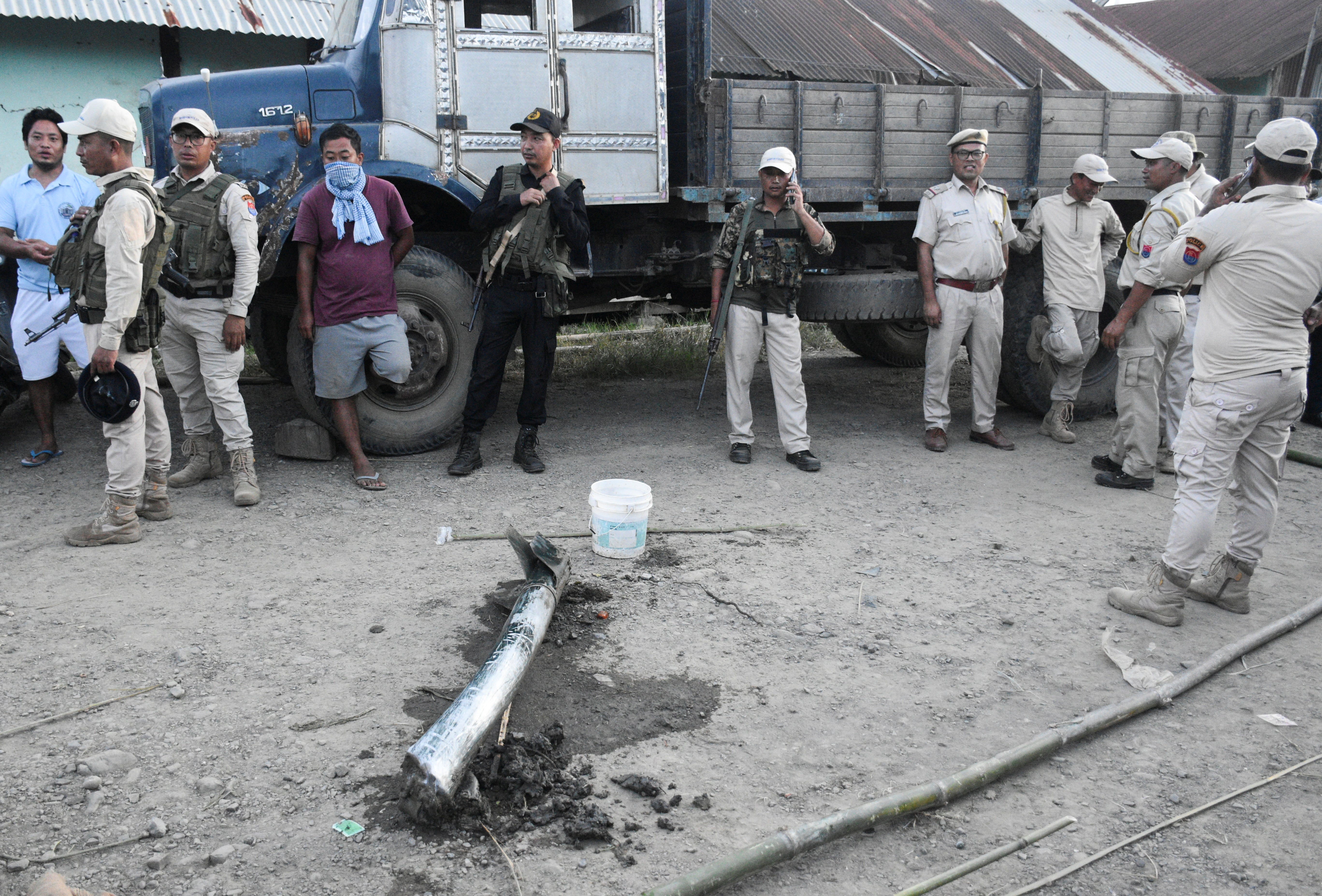
The latest outbreak of violence this month reportedly claimed at least 11 lives, adding to the mounting toll of arond 225 from fighting between the majority Meitei and minority Kuki communities that began in May last year. Death tolls are pieced together from media reports as the Indian government, which has come under sustained criticism for its failure to restore peace to the region, does not maintain a tally that is publicly available.
The 1 September attacks killed two, while subsequent rocket strikes on 6 September left one dead and six injured, including a teenager.
Villager Laishangthem Romen alleges that state law enforcement abandoned their posts as soon as the shooting began on 1 September in Koutruk.
“The firing went on non-stop for about 20 to 25 minutes, starting at around 2pm, when the woman was killed,” he says, referring to Surbala. As volunteers tasked with “defending” the village took position in bunkers they dug themselves, the first bombs started dropping.
Manipur Conflict: Key Points
The Manipur conflict began in May 2023, sparked by the proposed extension of minority status to the Meitei community
– Ethnic tensions between Meitei and Kuki communities have resulted in at least 225 deaths and 60,000 displacements
– Armed militias control territories, setting up checkpoints and bunkers
– Recent drone attacks have escalated violence
– The government has formed a high-level committee to investigate the violent incidents
He does not remember how many drones were dropping bombs but he claims there were more than one, adding: “Because when the volunteers gathered in my house to take shelter, we heard simultaneous bomb-dropping sounds from every corner of the village.
“We are used to defending the village using mortar shells, but were not prepared that Kukis would use this much technology to attack us.”
He alleges that India’s paramilitary Border Security Force (BSF), permanently stationed to protect the village, also abandoned it as the bombs started dropping. “That was the most shocking,” he says. “I was worried that today our village would be completely burned down and we would have no option but to run away.”
BSF did not respond to The Independent’s requests for comment.
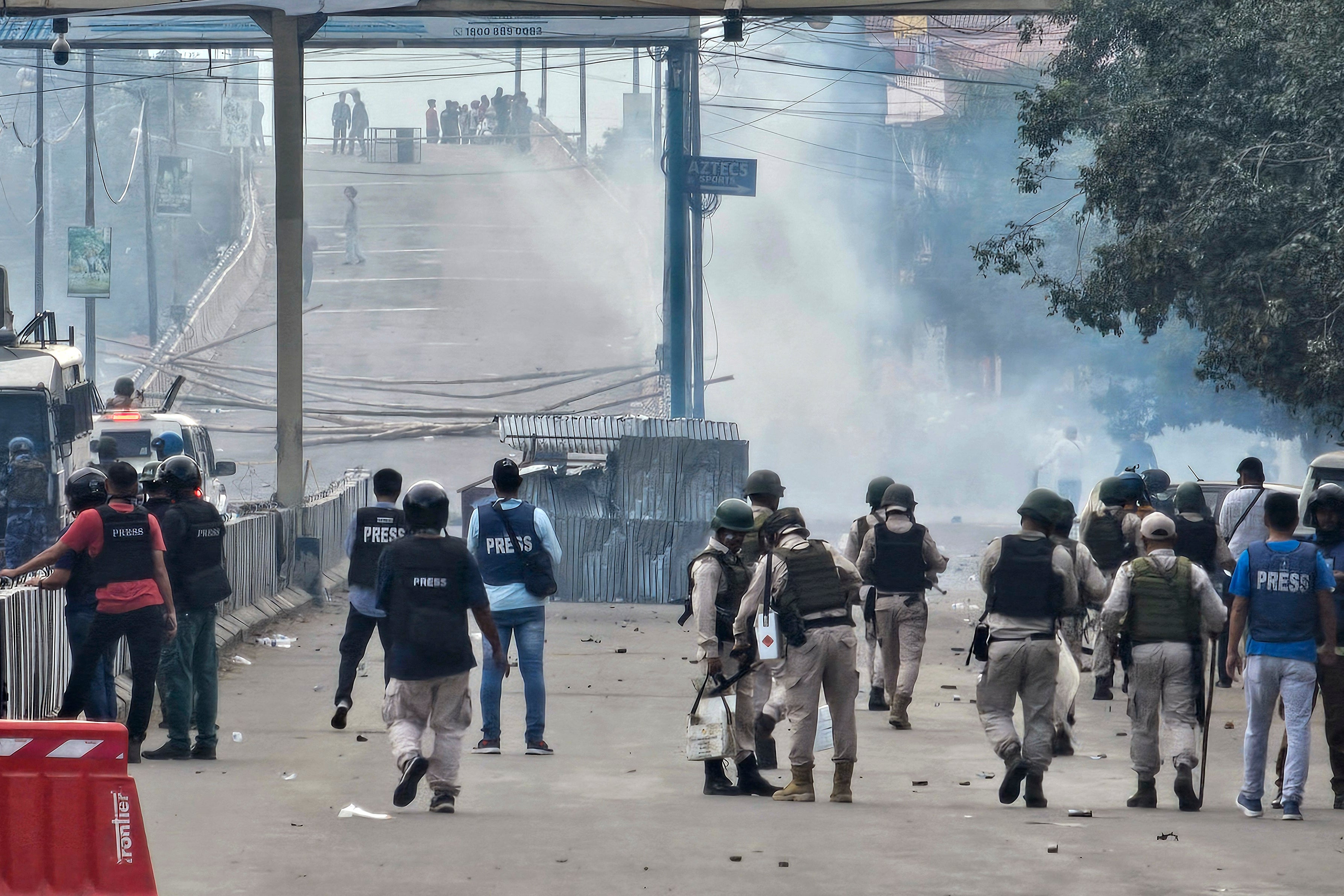
While at least five homes in the village were burnt down in the sporadic attacks that started at around 3pm, going on till 8.30pm, he is grateful that his home “is only partially damaged” and he was able to send his wife, children, and mother away soon after the firing began.
Romen lambasts the federal and state governments over their inability to contain the violence. “They have totally failed to control this conflict, even though they could do it,” he says.
Another villager, Thangminlun Mate, is still waiting to receive the body of his father, Limlal Mate.
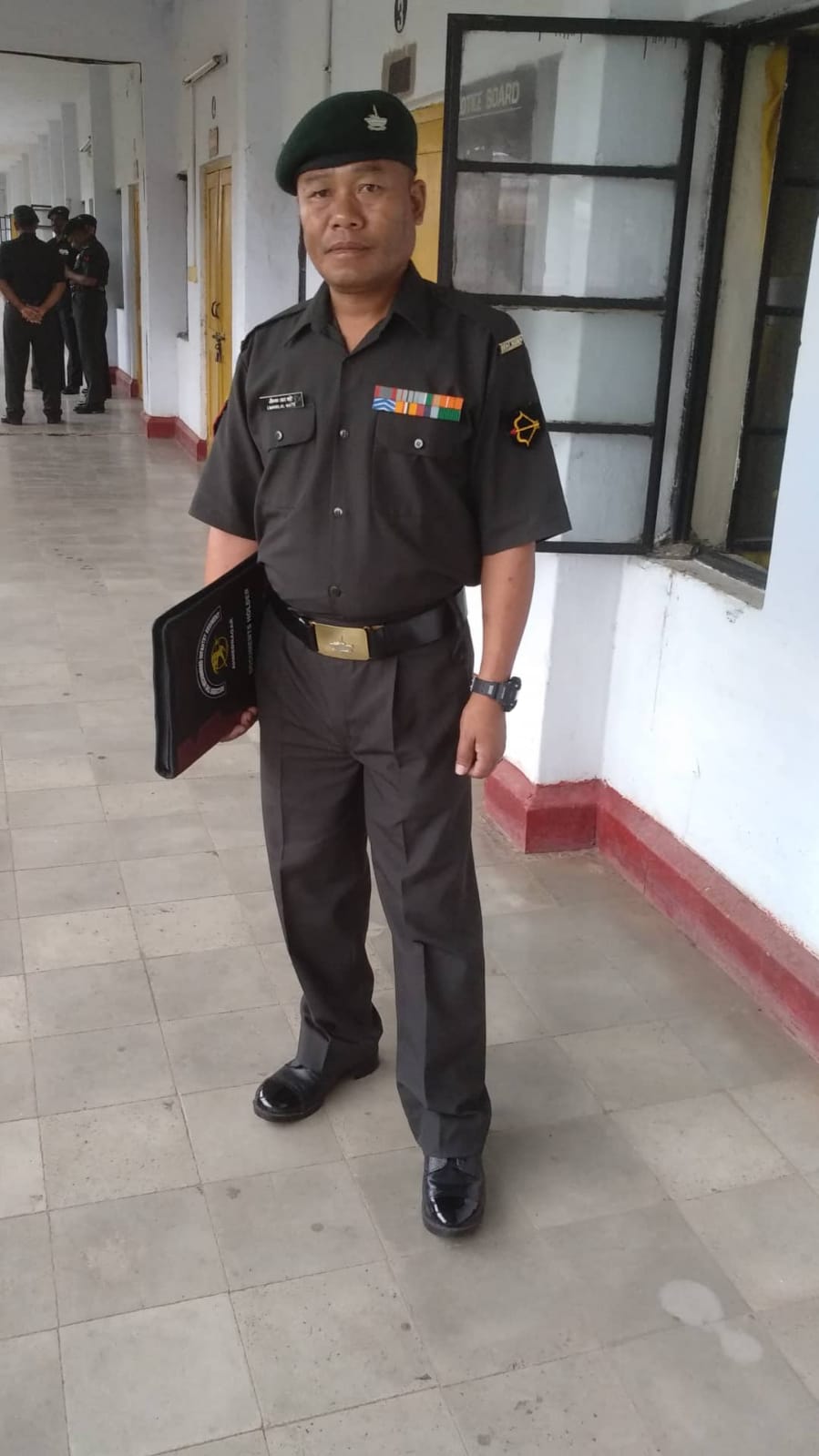
A resident of Kangpokpi, the 21-year-old learnt about the killing of his father on 8 September through a disturbing video circulating on social media. He says: “My father had ventured out to buy hardware for their home in Motbung, just 100-200 metres away in the afternoon. When he did not return by 6pm, I began looking for him.
“It was around 5.30am in the morning, I received a video in one of the groups showing his bleeding body. He was clearly beaten to death.”
A police investigation suggests the 64-year-old former serviceman was abducted by the armed Meitei group Arambai Tenggol after he unintentionally crossed the buffer zone between the two communities, entering into a Meitei-controlled area, reported The Print.
“It has left me sad and shocked,” Mate says as he waits to receive his father’s body which remains at a hospital morgue in state capital Imphal. Though the hospital is only 43 kilometres from his home, as a Kuki he is forbidden to enter – knowing he would be killed for crossing into the Meitei-dominated territory.
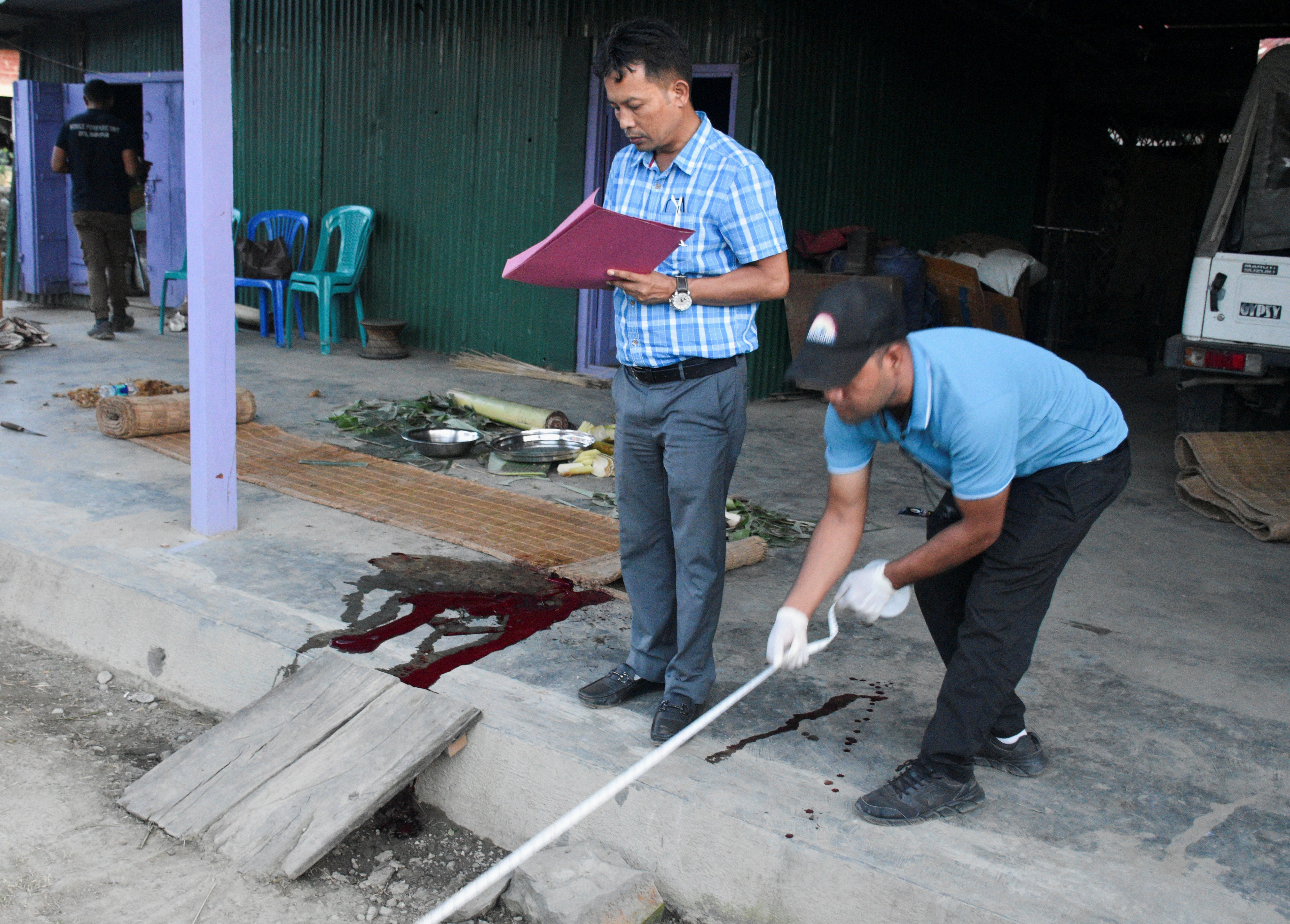
The Manipur police say they are investigating the new use of drones, and say it points to the involvement of trained professionals. A high-level government committee has also been formed that is racing to understand the “unprecedented” development, calling it a “significant escalation”.
Delhi is pushing to resolve the longstanding tensions between the two communities, home minister Amit Shah announced, after days of violent student protests and internet suspensions in some areas of the state.
“We hope that we will be able to bring the situation under control,” Shah said at an event this week discussing the first 100 days of Narendra Modi’s third term in power, adding: “If both [ethnic groups] do not come to an understanding, there won’t be a resolution to the matter.”
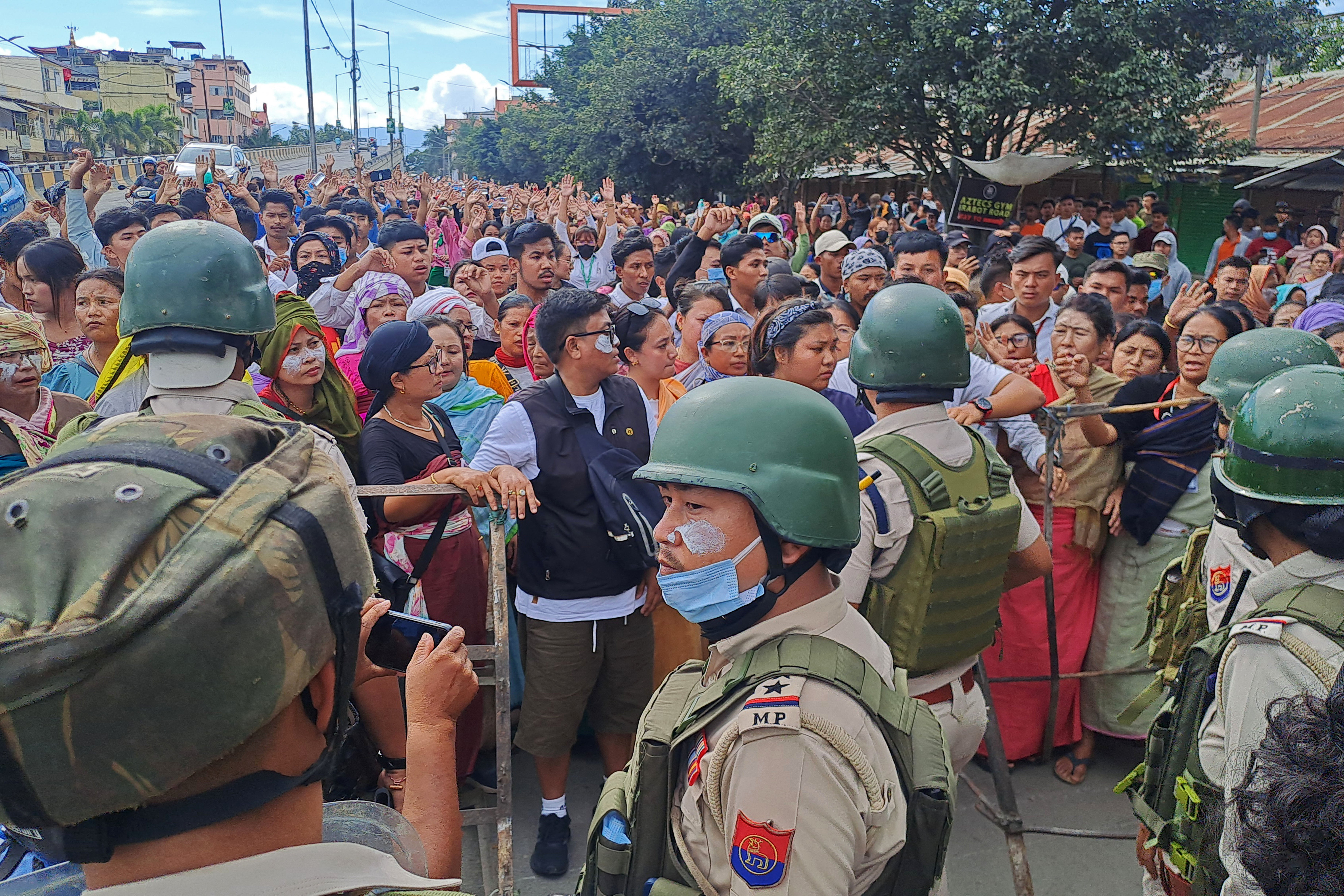
More than two weeks on, Ingo still struggles to come to terms with the loss of his wife. “Every time I come home, I expect her to call out to me, to greet me,” he says.
“I miss her simple words: ‘Dinner will be ready.’ She was the one who got our children ready for school every morning. I miss her terribly, especially in the mornings and evenings. The silence is deafening, and not hearing her voice is unbearable.”
Ingo’s daughter was shielded from the news of her mother’s death for 10 days. “When she finally learned the news, she was devastated,” he says. “She’s been crying incessantly, struggling to eat, and grappling with the loss. We’re trying to console her, explaining that her mother sacrificed her life for Manipur, that she’s a martyr. We want her to find strength in that.”
Join our commenting forum
Join thought-provoking conversations, follow other Independent readers and see their replies
Comments